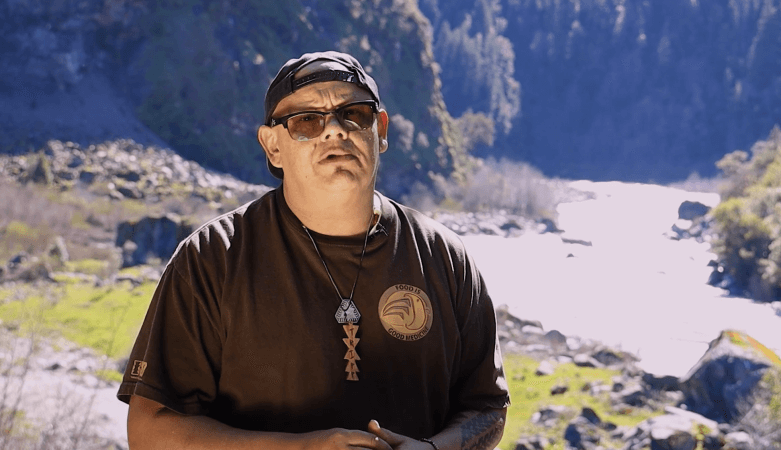Empowering Native Students Through Advocacy and Support: A Profile of Sonny Tripp
Page Media

Sonny Tripp is committed to transforming educational outcomes for Native students. As an Indigenous education advocate at the Northern California Indian Development Council (NCIDC), a partner organization of ACLU NorCal, Tripp plays a crucial role in mediating between families, tribes, and school staff. “My role is to see past the labels and stereotypes that hold our kids back and to recognize each student’s full potential,” Tripp says. “The days of schools neglecting and dismissing Native youth are over.”
Prior to colonization, Indigenous people nurtured their children’s education through deep connections to their lands and traditions. Their teachings were more than lessons; they were spiritual and mental anchors to the natural world and their communities. This profound wisdom was interrupted when settlers arrived, bringing with them the damaging mindset that Indigenous ways were inferior and needed to be erased.
The result was a public education system designed to destroy Native identity and culture, leaving Native people unmoored from their land and their spiritual connections. For over a century, this policy was manifest in the federal government’s boarding schools, where Native children were punished for practicing their traditions and speaking their languages. Many Native students are only two generations removed from this era, and the trauma continues to impact families today.
Tripp’s commitment to this work is deeply personal. His paternal grandmother was sent to the Sherman Indian Boarding School in Riverside, California. Despite her mother’s ability to speak five languages fluently, his grandmother spoke only English and broken Karuk because of her time at Sherman.
Growing up, Tripp faced his own learning challenges, as many Native students face in traditional public schools. “My reading comprehension was solid, but I couldn’t get my intellect on paper. It wasn’t until college that I was finally tested and properly diagnosed with ADHD.” This personal experience underscored the importance of addressing learning differences with support rather than labels. “Children know when they are being labeled and dismissed, and it affects their performance in school,” Tripp said. “This issue is particularly pronounced for Native students, who face rampant discrimination and stereotyping in school.”
Tripp’s daily work focuses on addressing and correcting the long-standing issues faced by Native students in an education system that was not designed for them. He described a recent incident where a principal sought to expel a Native student. When Tripp intervened, he discovered that the student, who had recently lost a parent and was in foster care, was being overlooked by school staff and lacked meaningful adult connections at school. “Kids need at least one safe space on campus where they can talk about what’s going on in their lives,” Tripp said. “I saw that she didn’t have that support.”
In that student’s case, Tripp shifted the school’s focus from discipline to support. He advocated for the student’s inclusion in an Individualized Education Plan (IEP)—a plan tailored to address the specific educational needs of students by setting clear goals and providing necessary accommodations and support services. This intervention transformed her school experience, connected her with supportive adults, and ensured she was recognized for her potential rather than her circumstances.
Tripp credits the success of such interventions to the strong partnership between ACLU NorCal and NCIDC and its member tribes, which began in 2020. “The relationship between our organizations is greater than the sum of its parts,” he notes. “Legal action can initiate change, but lasting impact comes from building trust with community members and ensuring Indigenous students receive ongoing support and respect beyond the terms of a legal agreement.”
A key outcome of the ACLU-NCIDC partnership was a report titled Failing Grade: The Status of Native American Education in Humboldt County. This report, published in 2020, revealed that Native American students in Humboldt County experience disproportionately high rates of exclusionary discipline, chronic absenteeism, and lower academic performance compared to their non-Indigenous peers. Additionally, the report uncovered a severe shortage of mental health professionals in the county’s schools, with nearly 90% of districts lacking school nurses and many lacking full-time social workers or psychologists.
Tripp’s position as Education Advocate, initially established with support from the ACLU and now sustained by donors, is crucial in addressing these disparities. “My goal is to help parents and students advocate for a better education for our Native youth,” Tripp said. “This involves increasing visibility and representation in the classroom, incorporating Indigenous perspectives and languages into curriculums, and addressing disciplinary issues in ways that prevent suspensions and loss of critical learning time. Most importantly, it means providing tailored support to recognize and encourage each student’s full learning potential.”
